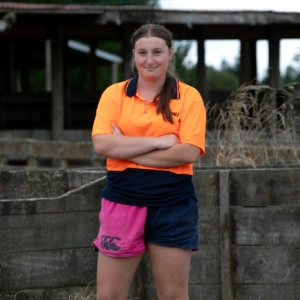Alan 'Mickey' MacDonald
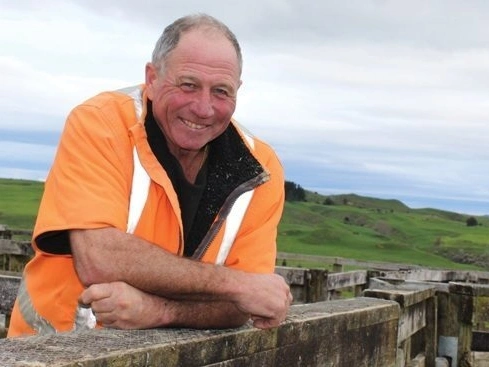
The steady hand behind Te Wharua
Alan “Mickey” MacDonald has been steering the ship at Te Wharua Station since 2005. A former shearing contractor with more wool under his belt than most sheds see in a lifetime, Mickey swapped the handpiece for farm management, bringing with him a deep knowledge of livestock, land, and how to get the best out of both. “Yeah, I did a few records,” he says. A modest understatement because in Mickey’s case, this means world-class shearing achievements.
Raised in nearby Piopio, Mickey’s connection to the region and its farming potential has shaped his approach to managing Te Wharua. His journey with the station began when he leased the original 1,430-hectare block in 2002. Recognizing the land’s potential, he joined Pāmu as farm manager after they purchased the property in 2005.
“They asked me if I wanted to stay on as manager and I had a good think about it and said yes. I already had a good team here and they all stayed on, so basically we kicked in from day one.”
Adapting to change - and staying ahead of it
Under his stewardship, Te Wharua has transformed into a high-performing breeding and finishing operation. Mickey’s hands-on approach has been instrumental in the station’s evolution. He oversaw significant investments in infrastructure, including a 4.5km central laneway and the subdivision of 130 paddocks, which have streamlined grazing and improved stock management. Fertilization programs and a water reticulation system now support the station’s productive pastures. The farm now runs 12,000 stock units including 5,100 Romney ewes, Angus breeding cows, and trade dairy beef heifers cross 1,800-hectares. Mickey’s also taken Te Wharua into Pāmu’s Dairy Beef programme, proving that with a bit of smarts and adaptability, farming can be both productive and sustainable.
Mickey’s adaptability is exemplified by his involvement in the Pāmu Dairy Beef programme, where dairy calves are reared for meat, connecting the dairy and beef industries for better business and environmental outcomes. Mickey notes:
“Farming has faced constant change over the last decade. Keeping an open mind as an ‘older farmer’ is essential, and being ahead of the curve where you can.”
A practical and people-centric approach
Mickey is a firm believer in the “tour bus” approach to farm management, asking himself, “If a busload of people were to turn up, what would they be unimpressed with?” This mindset drives him to maintain high standards across every aspect of the station. Highlighting the importance of maintaining high standards, he says: “I run the farm as if it was my own. If you walk into a shed and it’s spick and span, you think, ‘This fella expects a lot,’ so you give him a lot.”
Beyond focusing on infrastructure and production, Mickey takes pride in putting together cohesive teams to work the land, believing that teamwork is key to successful farming. Known for his willingness to give young people a chance, Mickey has mentored and trained many aspiring farmers over the years. He credits these relationships with keeping his own knowledge fresh, especially in a farming environment increasingly shaped by innovation and change, explaining:
“I’ve had some great young people through—usually I just see something in them that I like. They can come from any walk of life, and if they show the right interest and get the timing right, Pāmu and I can take them on.”
A farm built for the next generation
Mickey is deeply committed to sustainability, seeing himself as a “caretaker” of the land for future generations. He emphasizes the importance of thinking long-term: “You have to imagine how it will look in 30 years and hope to get it right. I’m only a caretaker. There will be another manager, and other families, here one day, and I want them to think, ‘Wow, this is cool!’”
Under Mickey’s leadership, Te Wharua has undergone significant changes to future-proof the farm. An advocate for sustainable farming, Mickey has championed Te Wharua’s environmental initiatives, such as the planting of 540 hectares of forestry on marginal (LUC 6 and 7) land ensuring that the rest of the farm can be managed more effectively. Waterway planting and the protection of QEII blocks of native forest have also been priorities, enhancing biodiversity and water quality. This project not only reduces the farm’s environmental footprint but also contributes to carbon sequestration and improved soil and water quality.
Mickey’s leadership and innovation have been widely recognized. In 2017, he and the team at Te Wharua earned multiple accolades, including the WaterForce Integrated Management Award and the Farm Stewardship Award from the Balance Farm Environment Awards. These honours highlighted his commitment to sustainable land use and effective resource management. He says:
“I want the next generation to walk in and see that we’ve left something amazing for them.”
Whether he’s mentoring young farmers, planting for the future, or making sure the place is always tour-bus ready, Mickey’s approach is simple: work hard, adapt, and leave the land better than you found it.
And if you ever visit Te Wharua, don’t be surprised if it’s Mickey himself who meets you at the gate—he’ll probably be out fixing a fence or checking stock, just like he has for the past two decades.
More farmer profiles
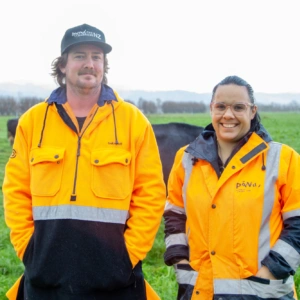
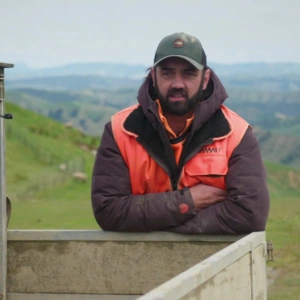
Jimmy Rogers
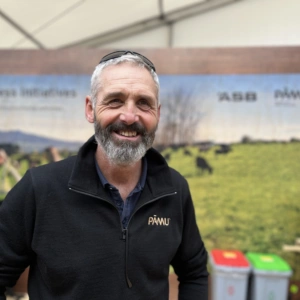
Gary Brady
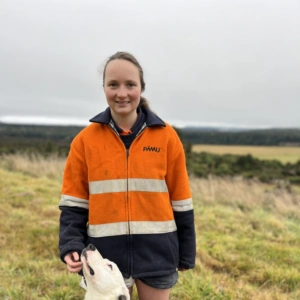
Bella Taylor
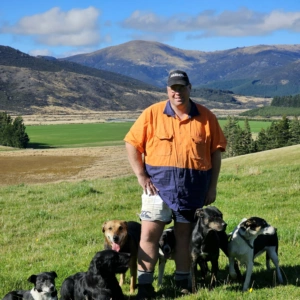
Kyle Keith (Scotty)
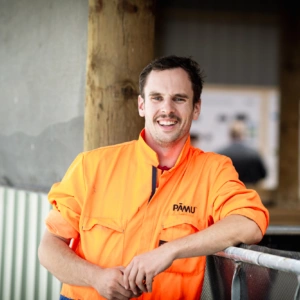
Sean Bevan
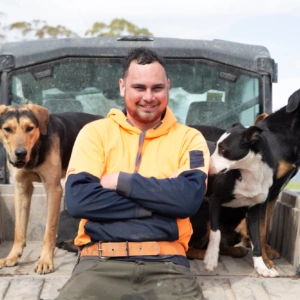
Kauri Warmington
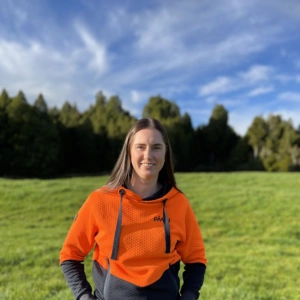
Kim Hooper
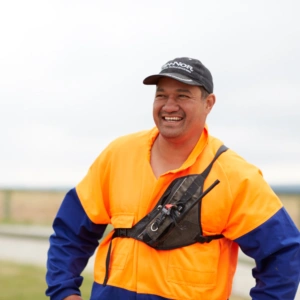
Jacob Ratu
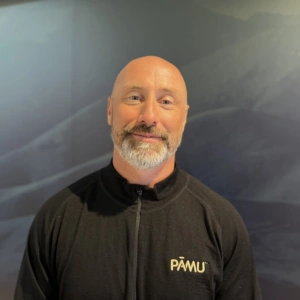
Todd Stewart
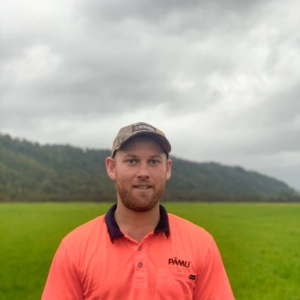
Dave Pearson
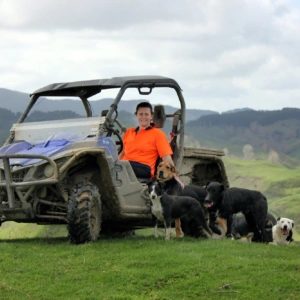
Anita Kendrick
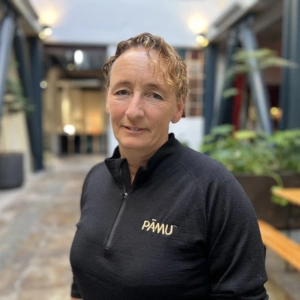
Penny Baker
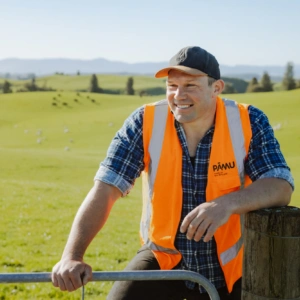
Carl Carmichael
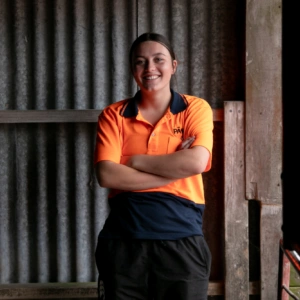
Aria Reeves
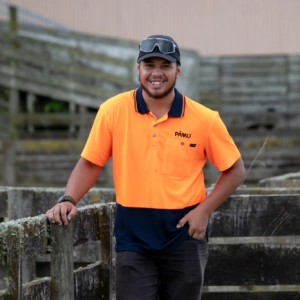
Taiwhakaea Osborne
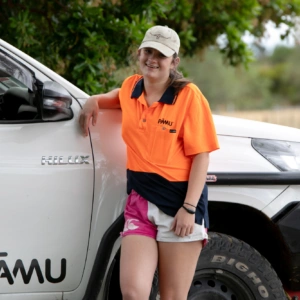
Abbey Brear
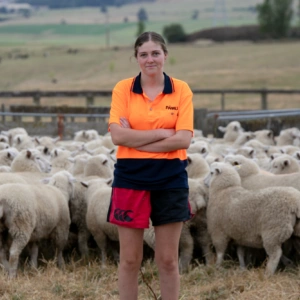
Ashlee Robertson
